Queer youth, you'll belong at this old Seattle house
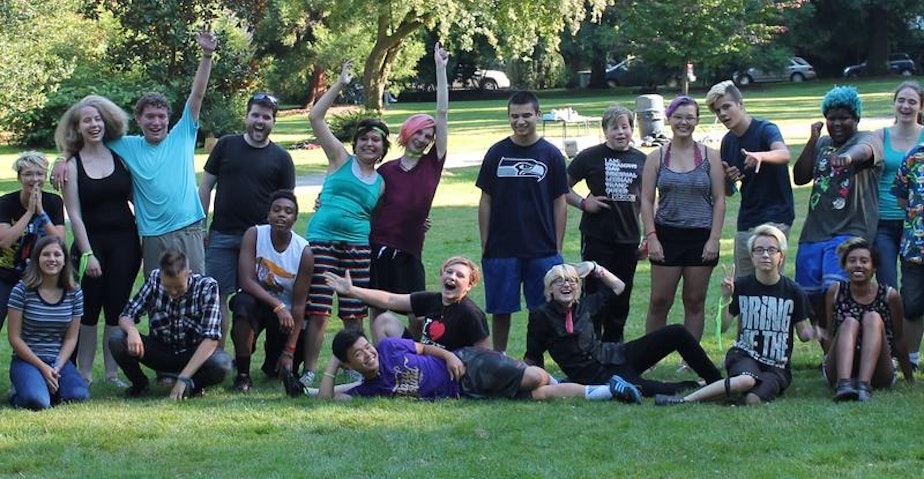
"Hiiiii!"
I open the magenta door to the Lambert House, a place on Seattle's Capitol Hill where queer youth are free to be themselves.
Brandon Knox, a former youth and now volunteer and outreach coordinator, calls it "one of the strongest senses of community that I’ve ever experienced."
I've been going to the Lambert House for a year now, 1 to 4 times a week. I've made lifelong friends that I can always be myself around. Like my best friend, Maya Vasquez, 19, a transgender female. Maya is outspoken and spends most of her time talking with the adult volunteers.
"Lambert House made me realize that I need to mature a lot, especially towards politics," she said. "I’m an advocate now."
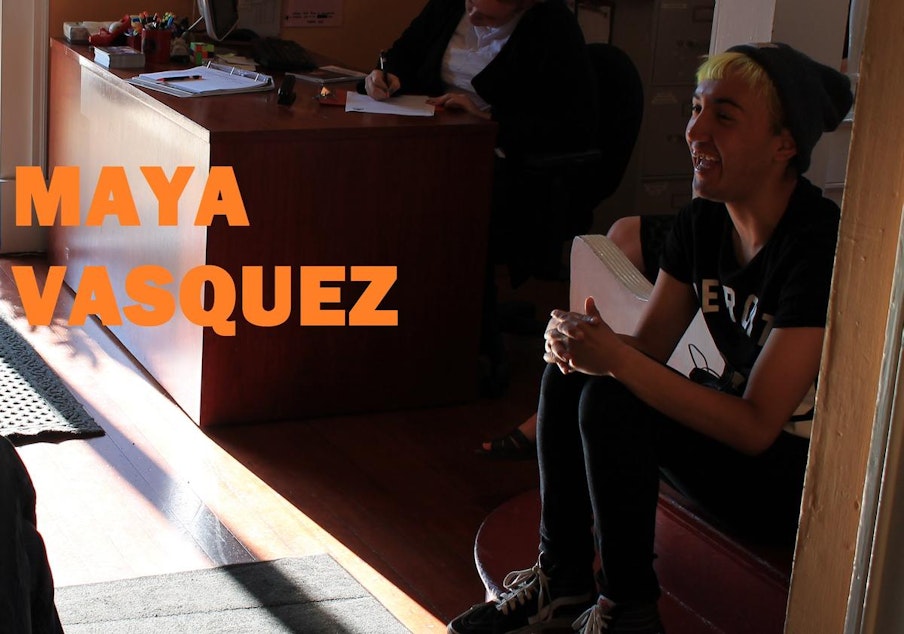
The Lambert House is a nonprofit center that started back in the 1980s as a safe place for queer youth to get involved in activities and events in the queer community. The house provides free resources including clothes, dinner and support groups.
Bryce Borkett is in the TV room. He's 14 and a transgender male. I always see him sitting in his favorite spot on the couch, glued to his computer.
He says the Lambert House "helped me see that I am not the only transgender person in the world, like I originally thought I was before."
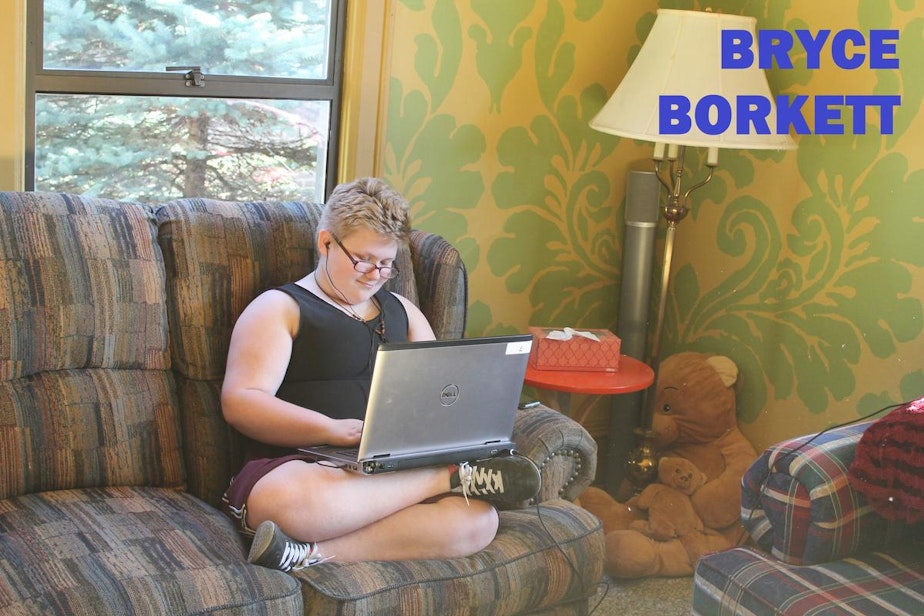
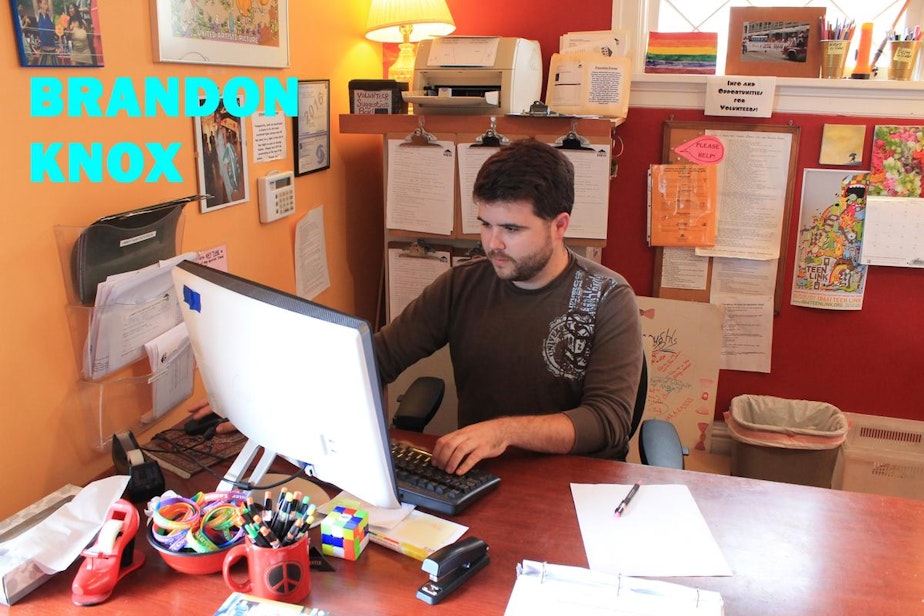
I often see Johnny Quintana, 17, in the kitchen. According to him he's gay ... probably. Although he's introverted, he is heavily active in planning events for the Lambert House.
"It’s giving me a clear picture of what I want to do in life, which is helping people and helping the queer community."
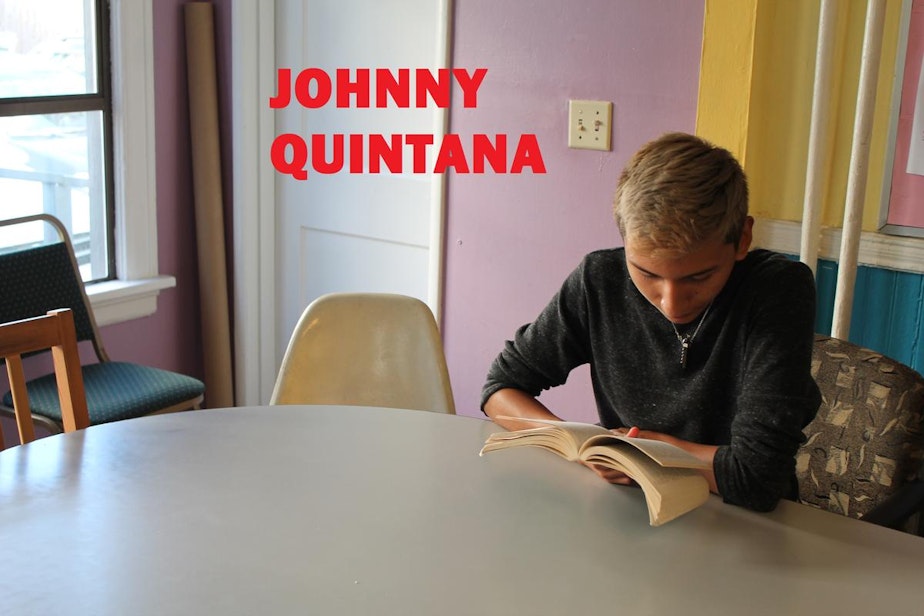
Upstairs, in the library, I see Carolyn Starkey, 18, and her girlfriend Francesca. They spend most of their time browsing the book collection and discussing common interests.
Starkey is laughing with her girlfriend, but her life hasn't always been happy.
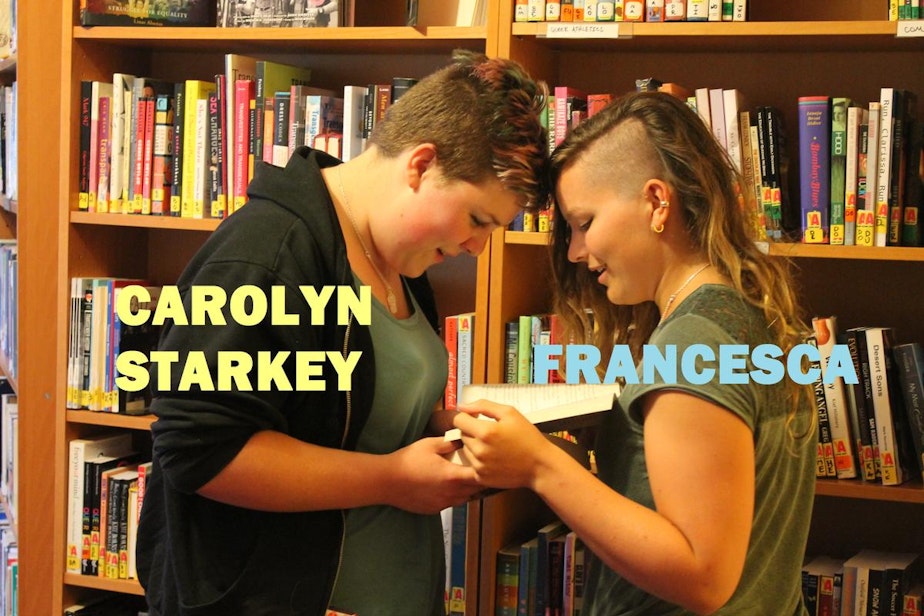
Before moving to Seattle, Starkey lived in Arkansas.
"I grew up in the church," she said. "No one learned my name, even though I was there for like 12 years."
Where she lived in Arkansas, Starkey said homosexuality was seen as a sin – a sin no better than murdering someone. She was afraid to be herself because of where she lived. Then the fear got to her. "Last October I was in the psych ward for suicidal ideation," she said, "and didn’t hear from my siblings or my mother, other than the brother I lived with."
Starkey's family didn't acknowledge her sexuality. "It was kind of one of those things when it was like, 'We’re just not gonna acknowledge it until she comes out and says it,'" she said. This January she came out of the closet, but she still needed to feel accepted for who she was.
Since moving to Seattle, Starkey is finally able to be her true self. "I’m able to out as a queer person now," she said. When she walks into the Lambert House and people greet her by name, she thinks, "Oh my god, how do you know my name? There are so many people here!"
"My therapist has pointed out what a difference it has made for me to be able to be around people and be able to talk to people," she added. "There's no place like [the Lambert House] to my knowledge in Arkansas. It’s a sense of community that I feel like I’ve been looking for and never found."
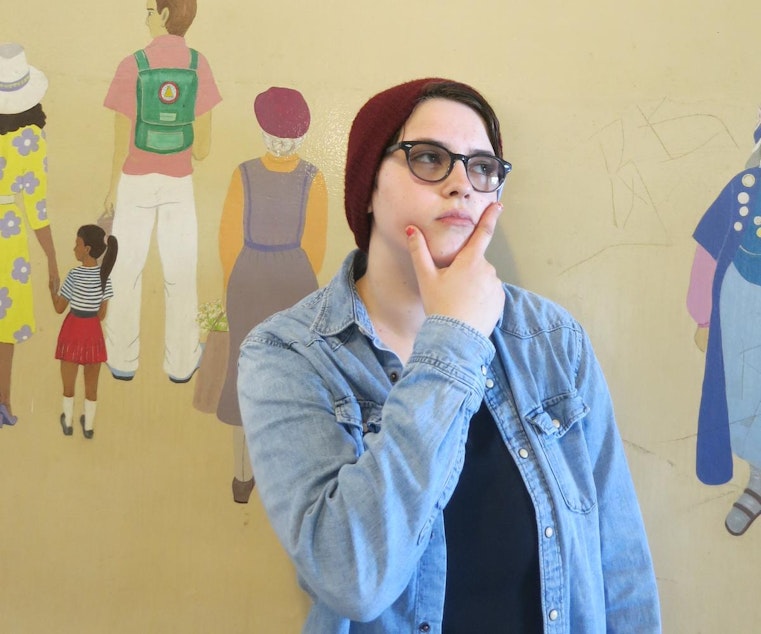
The Lambert House has welcomed and accepted everything that I am. I've made a family along the way.
Right now the Lambert House is stuck in a predicament. The owners of the house want $2 million by the end of the year, or else Lambert will be forced to move.
But no matter where they are located, I'll always be grateful for the Lambert House.
My support group, Queer Young Females, is about to start, so I take a seat in the circle.
This story was created in RadioActive's Summer 2016 Intro to Journalism Workshop for high school students at KUOW. Production support from Nina Tran. The editor is Jenny Asarnow.



